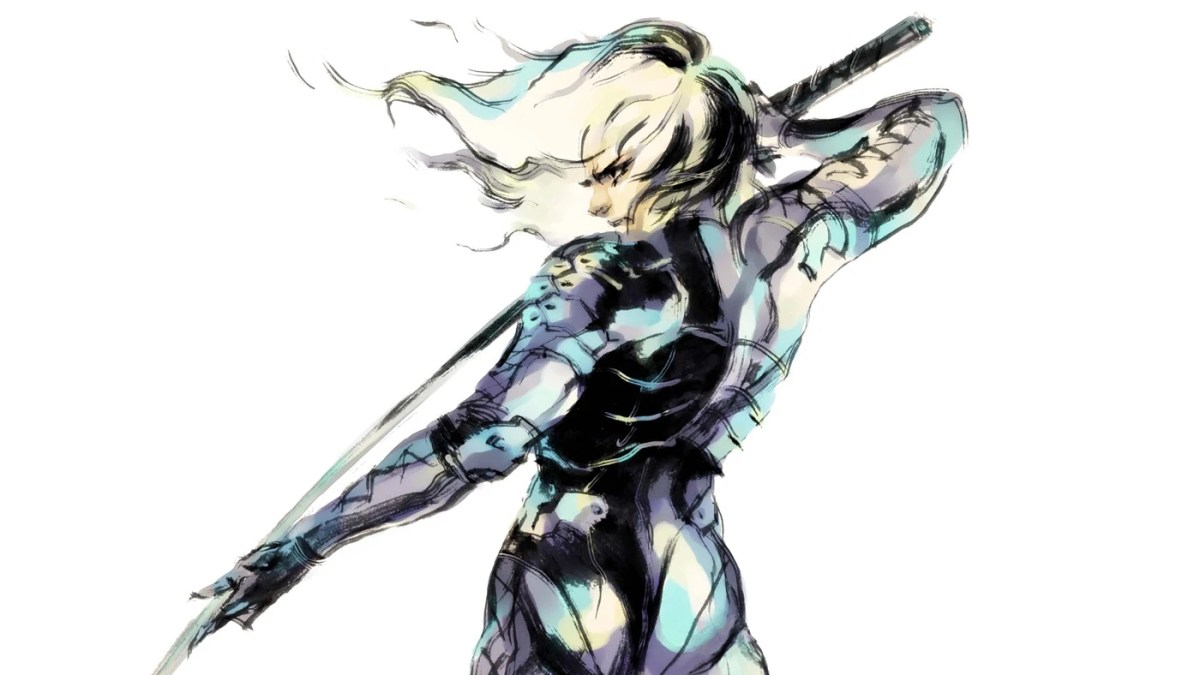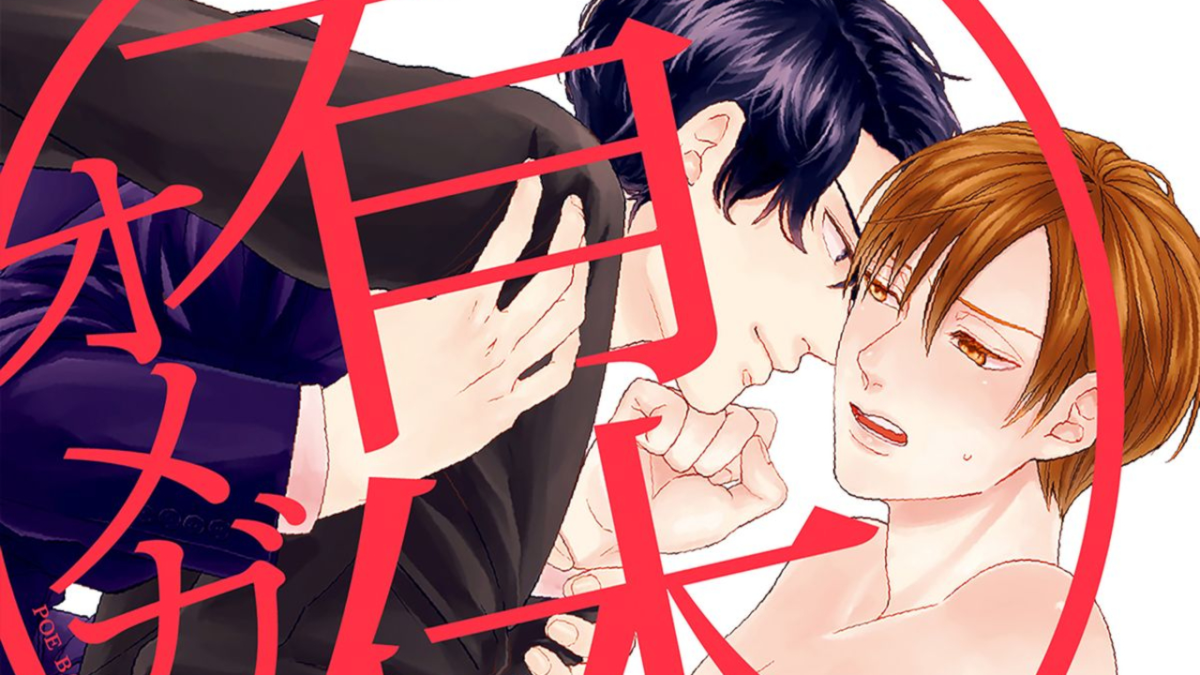What motivates our desires and why? Is it bad to interrogate them? These are pretty standard feminist criticisms, especially around erotica, pornography, and other forms of adult content. But a new essay published on Tor.com is ruffling feathers in fandom circles for arguing the fanfiction community “keeps coming back to the same tired echo of rigid, cis-heterosexual norms with a thin coat of Gay slapped over the top.”
In queer fandom critic Hannah M.’s essay “Queerness in Fanfiction: Gender, Queer Bodies, and the Omegaverse,” she argues fanfiction offers “a low-risk space for people who are questioning their identity to actually explore it.” M/M ships are common among soon-to-be-out queer women, M. notes, providing a conduit for self-exploration. That’s something I can relate to as well; I myself was a boys’ love fan as a teen, and Metal Gear Solid 2’s Raiden was pivotal to my own sexual awakening.
However, M. goes on to note that from what she’s witnessed, queerness in fanfic is often tepid and careful, it rarely seeks to smash binaries, but rather seeks out ways to reinforce them. M/M fics often revolve around two monogamous cis men who fall in love, one bigger and one smaller, one top and one bottom, one penetrator and one who is penetrated. The former is more likely to be strong and masc, the other curvy and femme, and their sexual encounters often reinforce the idea that penetration is fundamentally the domain of femininity (and thus womanness).
Then there’s the Omegaverse, M. writes, a popular fanfic premise in which humanity is separated into alpha, beta, and omega genders. In Omegaverse stories, society is built around hierarchical sexual domination, with alphas on the top of the food chain. Alphas are often built to impregnate omegas, leading Omegaverse writers to create their own unique takes on physical sex via, for example, a world where seemingly cisgender men can become pregnant via anal sex.
While M. celebrates that the Omegaverse is the product of fanfic creators collectively developing “a world that allows for the wholesale invention of physical sex characteristics,” she says that these stories continue to rely on “tropes that impose cisheteronormativity onto queerness” which elevate “the concepts of marriage (mating) and children from social norms to natural instinct.” Plenty of nonnormative Omegaverse stories exist, such as worlds where omegas must figure out their mutual desire for each other or lesbian alphas have penises that can be retracted back into their bodies, but M. says stories that are filed under the “Non-Traditional Alpha/Beta/Omega” tag on Archive of Our Own aren’t nearly as popular as the far more traditional Omegaverse tag.
Overall, M. concludes that queer fanfic can be separated into two subgroups: “Traditional” stories that display a reimagined queer relationship “closest to this ideal of a monogamous, active/passive pairing whose life goals sum up to marriage and babies,” and then there’s the “Non-Traditional” queerness that challenges these notions. The former ultimately tends to be more popular in fanfic spaces, which means fics that represent normative and normative-adjacent desires are more likely to be found in huge numbers. Stories that more accurately depict non-normative queer lives and bodies are not, and M. asks fanfic writers to reflect on why this happens in a space otherwise known for offering queer pairings in romantic and erotic fiction.
Just how heteronormative is queer fanfic?
M.’s essay has since sparked an enormous wave of criticism on Twitter. Some people have claimed her work is essentially guilting people into writing things that they don’t want to write. Others argue her essay shames them for just having fun on the internet. If you “don’t like” something, “don’t read” it, as the standard phrase goes in fanfic circles. Why ask fanfiction writers to reflect on the things they write?
To be clear, there are certain claims M. makes that warrant criticism. While the Omegaverse overwhelmingly leans in an M/M direction and F/F representation is far more rare (more specifically, 106,925 M/M stories compared to just 9,609 F/F in the AO3 A/B/O Dynamics tag), and most traditional Omegaverse stories are about cis-coded men engaging in alpha/omega relationships, the Omegaverse often plays with sex and sexuality in ways that couldn’t exactly be considered heteronormative. Connecting anal sex to impregnation is a new way of thinking about how reproduction (and thus sex) could operate for people without uteruses. In fact, the Omegaverse is often made fun of by people outside of its spaces solely because it imagines new conceptions of sex to celebrate the writer’s desires.
The very Omegaverse gender premise is pretty transgressive as well. It conceives of gender as an act of Domination/submission, and it imagines a world in which individuals have to cope with a sexual urge to dominate and impregnate (or submit and be impregnanted) that they can’t quite help. Grappling with gendered desire is a familiar queer urge, and any trans person can attest to the ways our bodies betray our minds and vice-versa. In a way, the Omegaverse’s erotic premise acknowledges how gender, desire, and politics are wrapped up within each other in complicated and uncomfortable ways. So while the Omegaverse can carry shades of heteronormativity, it can still queer our understanding of bodies and sexuality.
Similar nuances can be said about the masc/femme distinction happening in vanilla M/M stories: It may be somewhat heteronormative to imply receiving penetration is a feminine business and that penetration is a masculine affair, but it’s not heteronormative to imply (and celebrate) that men have the propensity to be feminine during sex. And, of course, there are many fanfics and writers who challenge these binaries.
The “Trans” tag and F/F problem
At its core, M.’s essay encourages us to think about the ways in which certain desires are more likely to appear on AO3 than others. The reason for this is political, and we should think about art and desire as a political concern.
For example, a quick look at the “Trans” tag on AO3 proves lesbian trans women are sorely underrepresented in romantic and erotic fanfiction. Under the tag, there are 103,938 stories, and 62,011 of these ships are M/M. Only 15,130 are tagged as F/F. There are 839,795 F/F works tagged across AO3, which means that only 1.8 percent of F/F ships across the site have a trans character.
Should I be outraged that less than two percent of AO3 stories focus on a relationship where one or more women have a body like mine? I think so. If a cis woman felt like she wasn’t properly represented in an adult medium, she would be furious. She would highlight the pleasure gap between cis men and cis women and suggest her desires were being ignored. And she would be right to point out this problem. She would be right to find ways to make her desires known, which is exactly why M/M ships have been so vital to cis women, straight and queer, exploring their sexualities. I would never want to take this away from them, but I also would ask them to think about the ways trans women and their desires are ignored in the F/F space. Because, in the same way, there are almost always more Cis Female/Cis Female fics for any given ship than Cis Female/Trans Female or Trans Female/Trans Female fics. And even when F/TF pairings pop up, that doesn’t mean the representation is going to be great for trans women. How does the fic writer describe our bodies? How do we have sex? Is it true to life? Is it affirming or stereotypical? That means even less fics are available for trans lesbians.
M. is speaking to exactly this kind of problem. She isn’t demanding writers to change everything they create, lest they be problematic. Rather, her essay is asking for a larger, communcal reflection on what kind of artwork we create and why. If fanfic is a space for queer exploration, what kind of longings are we actually exploring, and which ones do we avoid? Why do we desire the things we do, and what happens when desires that are normatively aligned are overrepresented in a space? If fanfiction is an art form, and I’d argue it is, then criticism around overrepresentation for certain kinds of plots, premises, and character archetypes is no less warranted than criticizing your favorite bookstore for overstacking M/F romance over M/M and F/F.
Does anyone have the right to queer fanfic?

In philosopher Amia Srinivasan’s essay “Does anyone have the right to sex?,” she turns back to foundational sex-positive feminist writer Ellen Willis and echoes a question long-forgotten in sex-positive spaces: “Why do we choose what we choose? What would we choose if we had a real choice?” These questions are familiar to trans women, who often find the cis gaze deems our bodies too strange, too kinky, too extreme, too “weird” to be desirable. At home, lonely and rejected, we recognize a dark thought: Is the trans body considered less desirable than the cis one at large? Srinivasan provides an answer to this question. Yes, she says, and we must “treat as axiomatic our free sexual choices” while understanding why “such choices, under patriarchy, are rarely free.”
“The sex-positive gaze risks covering not only for misogyny, but for racism, ableism, transphobia, and every other oppressive system that makes its way into the bedroom through the seemingly innocuous mechanism of ‘personal preference,'” Srinivasan declares. “The question posed by radical self-love movements is not whether there is a right to sex (there isn’t), but whether there is a duty to transfigure, as best we can, our desires.”
Queer men are more likely to consider desire as political than straight people, Srinivasan argues, because they recognize something that their straight counterparts cannot. Politics and desire are connected. Desire is “not metaphysical” but political, a phenomenon in which preferences “can and do alter.” Yes, desire “doesn’t always neatly conform to our own sense of it,” it “can take us by surprise,” it “can cut against what politics has chosen for us, and choose for itself.” But just as we cannot pick up and put down desires as if they’re books and TV shows, we can challenge our desires, ponder on them, steer them in a direction that’s more true to our values. Srinivasan cites fat positivity and the “Black is beautiful” movement, revealing how we can can look “at certain bodies — one’s own and others’ — sidelong, inviting and coaxing a gestalt-shift from revulsion to admiration.”
When I visit a fanfic site and see a ship has more CF/CF than TF/TF, or that cis bodies are largely celebrated and desired while trans bodies are often ignored, it reminds me that desire is and always a political question. Ultimately, Hannah M.’s essay is in dialogue with Srinivasan here: She asks us to think how the scales are tipped in a normative direction at large while leaving the marginalized body (literally) thirsty for our own forms to be cherished and celebrated. If we want our fandom spaces to be inclusive, then we have to be ready to think about the things we desire and why. If that’s a question too difficult to ponder, then our spaces will never truly be free.
(Featured image: MediBang)








